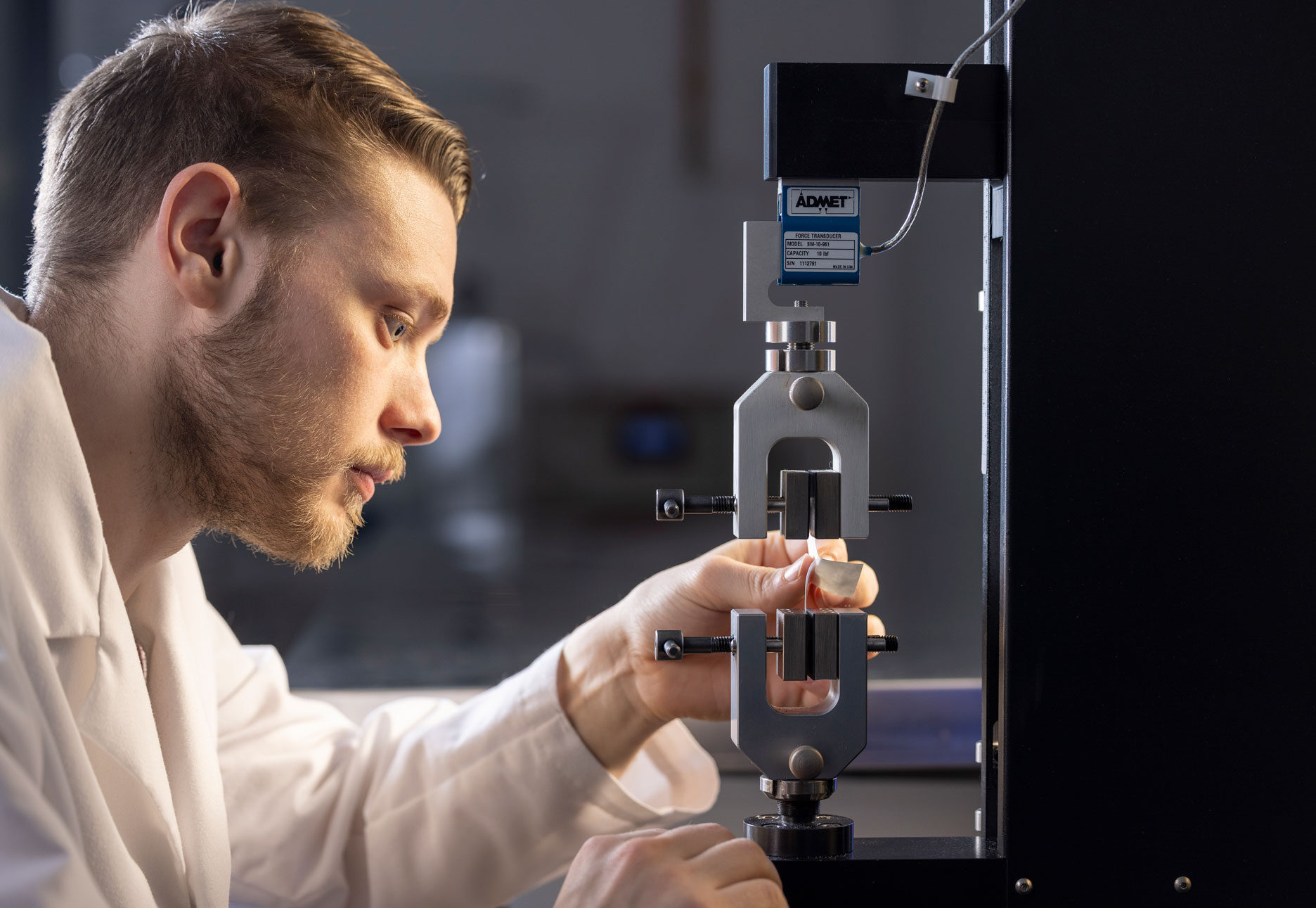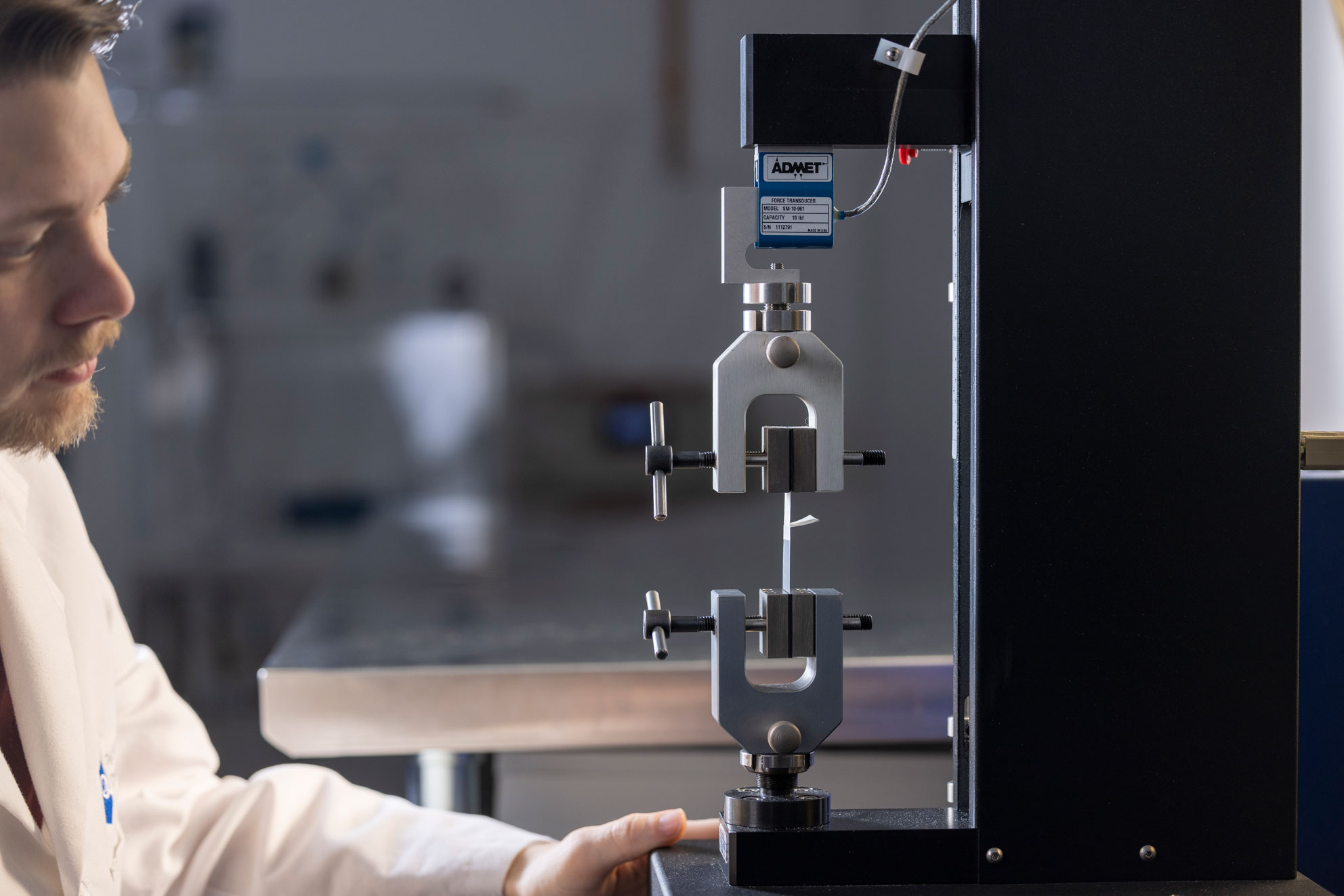
Peel Strength Test
This ASTM peel strength test method is commonly used to measure the strength of adhesive bonds between two sealed materials, especially the closure seal of a sterile barrier package, such as a pouch or tray. The test is conducted by first cutting a 1″ wide specimen from the package. The specimen is then inserted into the jaws of a test stand such as an Inston, with one half of the material in the top jaw and the lower half of the material in the bottom jaw. The test stand then automatically moves the opposing jaws apart, causing the seal between them to peel apart at a constant rate of speed. A load cell measures the force required to fully separate the seal.

Industry Application
ISO11607 requires that sterile barrier seals maintain a minimum specified seal strength. The minimum seal strength specification is developed based on the capability of the sealing process when using worst case sealing parameters, as determined by Operational Qualification (OQ) and Performance Qualification (PQ) validation activities. The minimum seal strength specification is then translated to production as an important part of quality control and monitoring of production processes.
Seal strength measurement can also be used to verify stability of materials over time, such as in shelf life validation studies. It can also be used to evaluate the efficacy of a sterile barrier system through the rigors of sterilization, distribution and storage. Seal strength is also an important tool when considering human factors such as the ability to open a seal aseptically.